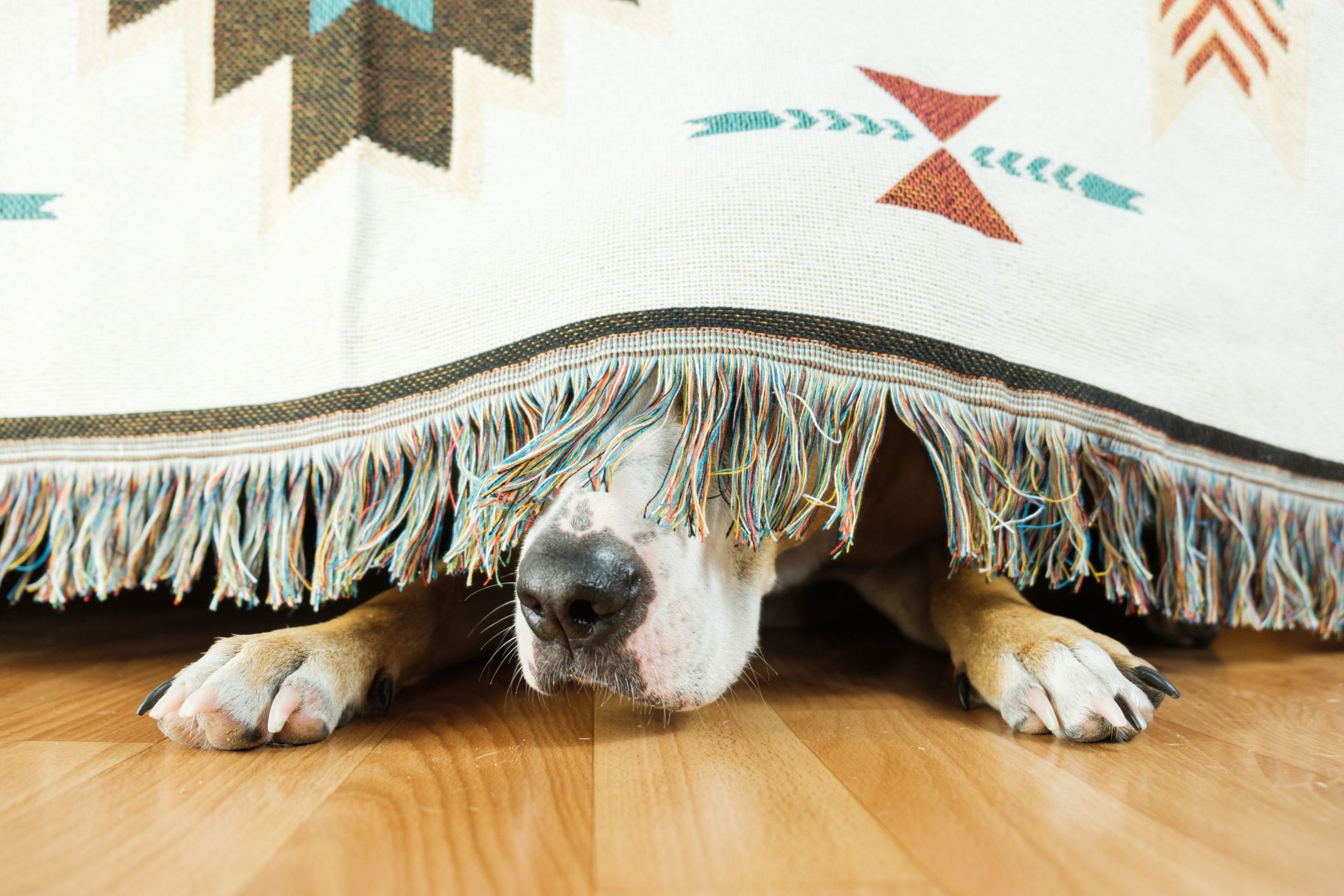
Our pets are phenomenal at navigating the modern world, but there are plenty of surprises that can startle even the most confident animal. In fact, their nerves can get rattled fairly quickly when a loud truck goes by or they find themselves in a crowded public place. As they take cues from their owners, it’s necessary to maintain an emotionally calm or neutral demeanor. However, pet noise anxiety can really get out of control if not dealt with head-on.
What Is It?
Sometimes there’s no telling what will set off a pet’s anxiety. It might seem fairly innocuous, like a distant siren or breaking glass, but if a sound is connected to a deep-seated, frightening memory, they can react instinctively.
Many pets respond to fear with a fight-or-flight mechanism. If an owner doesn’t know that a fireworks display or a thunderstorm will trigger a strong reaction in their pet, it could lead to a dangerous scenario.
Safety First
Some pets will hide to wait out the scary experience. Others will try to escape and flee their situation, even if it’s not the source of their fear.
To protect against accidental loss or separation, be sure to bring your pet to a safe place as soon as you realize they are stressed or anxious. Their collar and ID tag are incredibly important, but can be removed or fall off. If they are microchipped, their chances of being reunited with you are much higher.
A Place of Calm
To reduce pet noise anxiety from developing into a full-fledged phobia, find a quiet room or back corner of the house to wait out the storm or other noise-related event. Dim lighting, soft music, and a few of their favorite things, like soft bedding, toys, treats, and plenty of water can round out the scene. Stay with them, if possible, and give them reassurances and support.
What to Watch For
Often, pet noise anxiety is predictable, but it can also occur unexpectedly with little or no warning. The following symptoms of fear, stress, and noise-related anxiety should never go ignored:
- Pacing
- Whining or other persistent, uncharacteristic vocalizations
- Look of panic or doubt in the eyes
- Ears pinned back
- Shaking or trembling
- Panting
- Yawning
- Drooling
- Clinginess
- Hiding
- Lip-licking
- Destructive behavior
- Urining, defecating, vomiting
- Escape attempts
The Big Picture
If pet noise anxiety is allowed to persist without intervention or support, it can get much worse over time.
Counter conditioning is a process wherein you expose your pet to the source of their fear slowly and carefully while giving them a positive experience. If they begin to attach their known trigger(s) to something else that is positive and supportive, when the “real” event happens next they may cope better.
Desensitization involves overexposing them to the sound(s). Over time, gradually increase volume while your pet continues to go about their life.
Pet Noise Anxiety
Some pets benefit from certain prescription medications that ease symptoms associated with anxiety from noises. We can help your pet deal with scary, loud noises so they can get back to doing what they do best: Making you happy!
Please call us at (732) 677-2180 with any questions. True Care Veterinary Hospital is always here for your pet.

